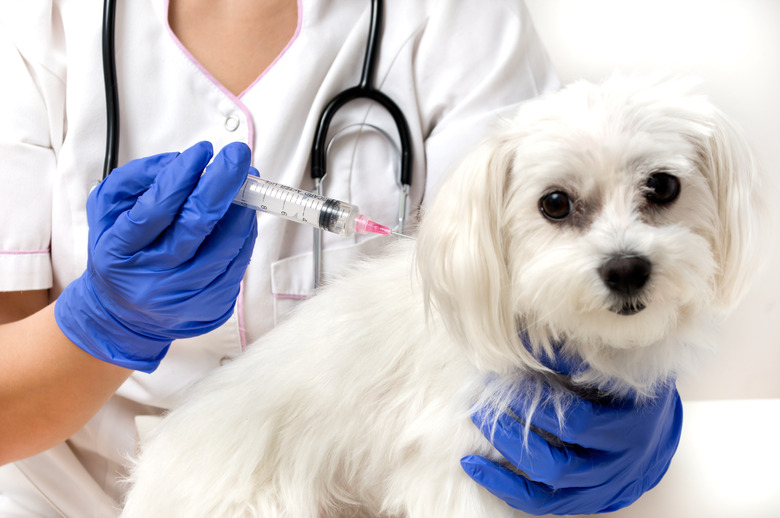Bringing a puppy into your home is an exhilarating experience, one that comes with its own set of responsibilities. Among these responsibilities, ensuring your puppy’s health is paramount. One crucial step in safeguarding your puppy’s well-being is the Bordetella vaccine. This vaccination protects against Bordetella bronchiseptica, a bacterium that can lead to kennel cough. However, as with any medical intervention, it’s essential to comprehend the potential side effects associated with this vaccine.
The Bordetella vaccine is particularly recommended for puppies and dogs that frequent canine social settings, such as parks, grooming facilities, or boarding establishments. It can significantly reduce the risk of respiratory illness, yet understanding its side effects can prepare pet owners to respond appropriately should any adverse reactions occur.
Firstly, it is vital to note that reactions to the Bordetella vaccine are generally mild and temporary. Nevertheless, becoming familiar with the potential consequences can be invaluable. The most common side effects observed in puppies include:
- Localized Reactions: Some puppies may experience swelling or discomfort at the site of injection. This usually resolves within a few days and requires minimal management.
- Low-Grade Fever: An elevation in body temperature is a typical response to vaccinations, signaling that the immune system is engaged. This fever is usually mild and subsides within a short period.
- Fatigue: Post-vaccination lethargy is not uncommon. Puppies may seem more tired than usual as their bodies work to build immunity.
- Decrease in Appetite: A temporary loss of appetite can occur. Puppies may become less interested in food shortly after vaccination, returning to normal within a day or two.
- Allergic Reactions: Though rare, some puppies may experience allergic reactions, such as hives or swelling around the face. These reactions require immediate veterinary attention.
As a responsible puppy owner, it is crucial to monitor your pet’s behavior following the Bordetella vaccination. Keeping an eye on their energy levels, appetite, and any unusual signs will help catch any adverse effects early. Recognizing the difference between normal post-vaccination behavior and signs of distress is key.
If a puppy manifests more significant or persistent symptoms, such as a high fever or difficulty breathing, it is imperative to consult with a veterinarian right away. Proactive communication with your vet can not only mitigate concerns but can also provide peace of mind, ensuring the health of your beloved furry companion.
On the flip side of the equation, the benefits of vaccinating your puppy against Bordetella far outweigh the potential risks associated with side effects. Bordetella bronchiseptica is a highly contagious bacterium, and boarding facilities often require vaccination due to the risks associated. A vaccinated puppy enjoys not only enhanced health safety but also peace of mind when socializing with other dogs.
Moreover, vaccination aids in the overall health and well-being of the canine population. By vaccinating your dog, you contribute to herd immunity, protecting not just your puppy, but others that may be more vulnerable.
When preparing for the Bordetella vaccination, pet owners should maintain an open dialogue with their veterinary healthcare provider. Discuss any health concerns, history of previous vaccines, or known allergies. This ensures a personalized vaccination plan tailored to your puppy’s specific needs.
Furthermore, understanding the difference between the injectable Bordetella vaccine and the intranasal form is essential. The injectable version is administered through a syringe, while the intranasal version is squirted into the dog’s nostrils. Both forms are effective, yet some studies indicate that the intranasal method may provide quicker immunity.
In conclusion, administering the Bordetella vaccine to puppies is a critical component of responsible dog ownership. While side effects can occur, they are typically mild and manageable. By remaining vigilant, monitoring your puppy’s response, and maintaining open communication with your veterinarian, you empower yourself to navigate any potential post-vaccine situations smoothly.
Beyond vaccinations, holistic puppy care encompasses proper nutrition, regular exercise, and socialization. Combined with routine check-ups and vaccinations, these practices form a comprehensive approach to maintaining your puppy’s overall health. Establishing a solid foundation early on will lead to a healthier, more resilient adult dog, ready to tackle any adventure life throws its way.
Arming yourself with knowledge and proactive care strategies ensures that your puppy not only receives the vaccination but also thrives in their new environment. Enjoy the puppy years and all the joys and challenges they bring! By embracing the responsibility of pet ownership, you provide your furry friend with a loving, healthy home.
